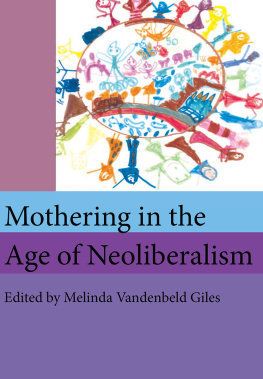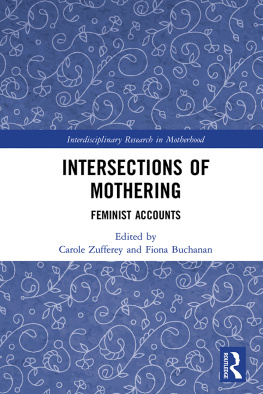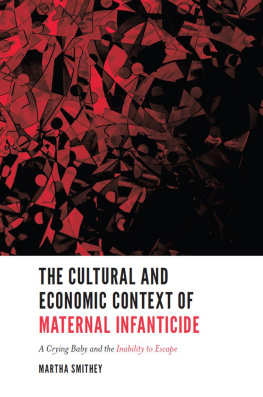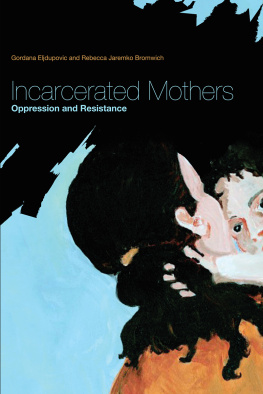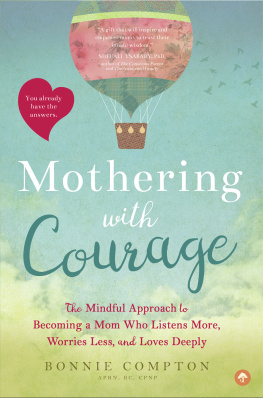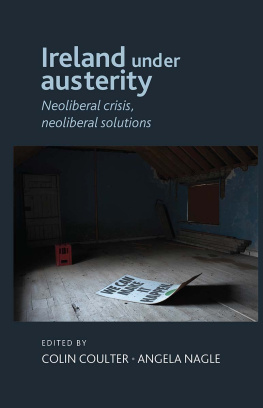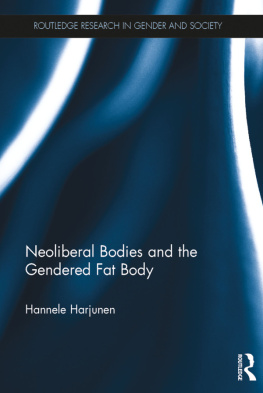Mothering in the Age of Neoliberalism
Mothering in the Age of Neoliberalism
Edited by
Melinda Vandenbeld Giles
Copyright 2014 Demeter Press
Individual copyright to their work is retained by the authors. All rights reserved. No part of this book may be reproduced or transmitted in any form by any means without permission in writing from the publisher.
The publisher gratefully acknowledges the support of the Canada Council for the Arts for its publishing program.
Demeter Press logo based on the sculpture Demeter by Maria-Luise Bodirsky < www. keramik-atelier.bodirsky.de >
Cover Artwork: Maya Vandenbeld Giles Colours of the World, 2014
eBook development: WildElement.ca
Printed and Bound in Canada.
Library and Archives Canada Cataloguing in Publication
Mothering in the Age of Neoliberalism / edited by Melinda Vandenbeld Giles.
Includes bibliographical references.
ISBN 978-1-927335-28-4 (pbk. )
1. MothersSocial conditions21st century. 2. MothersEconomic conditions 21stcentury. 3. Workingmothers. 4. MotherhoodSocialaspects. 5. Motherhood Economic aspects. 6. MothersPolitical activity. 7. NeoliberalismSocial aspects. I. Vandenbeld Giles, Melinda, 1973-, author, editor of compilation
HQ759. M884165 2014 306. 874 3 C2014-900698-5
Demeter Press
140 Holland Street West
P. O. Box 13022
Bradford, ON L3Z 2Y5
Tel: (905) 775-9089
Email: info@demeterpress.org
Website: www.demeterpress.org
Table of Contents
Foreword
Countervisions
CHRISTA CRAVEN
The advent of neoliberalism in the late 20th century brought with it a myriad of social, political, and economic shifts that have had profound effects on all of our daily lives. the fallout of neoliberalism has rested disproportionately upon mothers, often from racially and economically marked groups.
Indeed, although neoliberal public policy shifts have evidenced their deepest impact upon those struggling to survive within ever-widening economic gaps, all mothering has become complicated by a nave trust in unbridled choice and the promotion of unfettered consumption and privatization as the antidote to social and economic inequity. While in some places, consumer rights for mothers are lauded as the ascendant strategy for achieving social change, and child-rearing strategies are increasingly managed and surveilled by judicial bodies when social safety-nets are eliminated, in other places, the concept of individual rights is lost as mothers become subsumed beneath financialized corporate imperatives.
It is more important than ever for feminist scholars to put our research to work in offering alternatives to the overwhelmingly market-driven approach of neoliberalism. In order to do this, feminist ethnography offers a particularly potent methodology to interrogate and challenge the widereaching effects of neoliberal policies and practices. As I have argued with Dna-Ain Davis previously, feminist ethnographywhich privileges particularity and the importance of individual experience, situated within unevensystemsofpowercanbecentralinuncoveringhowneoliberalistpolicies lurk in peoples everyday lives and offer compelling and innovative countervisions to neoliberalisms purportedly apolitical faith in the market to ameliorate social, political, and economic inequities (Craven and Davis 6).
Mothering in the Age of Neoliberalism offers thoughtful and thoughtprovoking new material to this sustained feminist critique by pairing detailedethnographicanalysesfocusedonwomensintimateandhighlypoliticized lives with sharp critiques of public policy throughout the globe that question neoliberalisms ascendency. Situated historically within the shifting political and economic landscape of neoliberalism at the turn of the 21st century, authors in this collection explicate the ways that class-based and racialized inequities create uneven terrain for mothers. In particular, they highlight ways that mothers frequently police other mothers in welfare offices and on nativist anti-immigration websites (Bloch and Taylor, this volume, 199), and how mothers are often airbrushed out of public assistance programs (Chelliah, this volume, 185), policies aimed at the homeless (Vandenbeld Giles, this volume, 153), and the harsh guidelines of Structural Adjustment Programs (Ogunyankin, this volume, 329).
While neoliberal policies disproportionately affect poor and racialized mothers, the collection effectively highlights how, despite popular media representations, neoliberalism infiltrates and negatively affects the lives of all mothersfromabroadrangeofbackgroundsandconstituenciesthroughout the world. Authors highlight how neoliberalism has subtly (and oftentimes not so subtly) seeped into the norms and practices of motherhood among women in racially, ethnically, and economically dominant groups throughout the world. In particular, authors highlight the deployment of socially conservative public policies under neoliberalism (Baker, this volume, 169), the public valuation of a variety of experts advocating effective mothering(SongandLee, thisvolume, 211), theadventofincreasingflexible labour among mompreneurs in areas throughout the globe (Anderson and Moore, this volume, 95; Esnard, this volume, 133), and impossible efforts at work-life balance as mothers and those who support them negotiate between flexible embodied care and market rationality (Castaeda and Searcy, this volume, 90; see also OBrien Hallstein, this volume, 297).
The authors in this collection seek to ground more abstract theoretical discussions of neoliberalism in sharply critical, often ethnographically specific analyses of public policy in areas throughout the world as it affects womens lived experience of mothering. Cumulatively, the authors also have several important lessons to offer continued feminist activist work into the 21st century, as well as movements toward social justice aims more broadly. Here they offer strong critiques, for instance, of recent debates over Momism and a neo-conservative post-feminist political climate under which womens rights [have] become political points of negotiation (Chelliah, this volume, 193); see also Baker, this volume, 169; Bloch and Taylor, thisvolume, 199; OBrienHallstein, thisvolume, 297). Othershighlight how the narrow (if well-intentioned) foci of movements for the rights of the child (Breton, this volume, 315), ecologically driven green motherhood (Takeshita, this volume, 117), and the increasingly popular services of doulas in an age when medical provisions for mothers have been eroded (Castaeda and Searcy, this volume, 75) can silence structural problems that ultimately exclude many mothers from these choices.
Situatingneoliberalpoliciesintheirlocalcontextdeconstructstheirpresumed homogenizing effects. For instance, while in North America, neotraditional family configurations provide the policy antidote to swelling inequities (OBrien Hallstein, this volume, 297), in the Philippines, mass migration and dispersed extended families provide the purported solution to impoverishment (Bryan, this volume, 35). In fact, as these chapters demonstrate, despite popular Euro-American conceptualizations of motherhood as biological (and perhaps adoptive), mothering frequently encompasses communityengagementfarbeyondbiologicalkinshipstructures. Yet, however motherhood is defined, these chapters draw important attention to how the unremunerated or poorly remunerated labour of mothers is so frequently left unacknowledged by policy makers, precisely because it remains so pivotal to the neoliberal paradigm.

